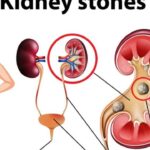Ever wondered can you get STD from kissing someone? Even though some diseases can be spread by saliva, there is little chance that one may catch an STD from a kiss. However, it is important not to kiss a partner with a sore mouth and also practice good oral hygiene.
Now, I know what you are probably thinking—’Oh, come on! Are you telling me I can get an STD if I kiss someone? That can’t be true!’ Well, while it’s not as common as say skin-to-skin contact, yes, you can get some STDs through kissing.
This means before you kiss that person, check the mouth. Okay, let’s focus on this topic a little more and find out what you can do to protect yourself.
What are STDs?
STDs (sexually transmitted diseases) are not a fun topic; however, we must discuss them for more awareness. So let’s explain simply for proper understanding.
In a nutshell, STDs are diseases transmitted from one person to the other through sexual activity. Some common STDs are Chlamydia, gonorrhea, syphilis, HIV/AIDS, and herpes. These infections may be bacterial, viral, or parasitic and are contracted by anyone sexually active.
But how can a person know he or she has an STD? The symptoms can be different depending on the type of infection. Certain STDs, such as chlamydia and gonorrhea, present symptoms like unusual discharge, pain or burning during urination, and abdominal pain. Also, some of them may have symptoms like sores in the genital area, flu-like symptoms, and a weakened immune system.
If you’re sexually active, you must go for an STD checkup now and then, even if you might not be exhibiting any symptoms of the illness. This is especially important for individuals with multiple sexual partners.
So, how are STDs treated? The treatment for STDs depends on the particular infection. Most bacterial STDs such as chlamydia and gonorrhea can be cured with antibiotics. While STDs like herpes and HIV/AIDS are treated using antiviral drugs. If you think that you may have an STD, it is wise to visit the medical facilities for treatment.
Can you get STD from kissing?
Kissing is not an efficient way to pass most STDs. But can you get an STD from kissing? The answer is yes. However, the chances are very slim.
The majority of the STDs like chlamydia, gonorrhea, and HIV can only be transmitted through direct contact with body fluids such as blood, semen, vaginal fluids, or anal fluids. These fluids are not interchanged during a kiss with a partner or just a simple peck on the lips.
On the other hand, some STDs can be passed through the kiss. For instance, the herpes simplex virus that causes herpes is transmittable through kisses when an infected person kisses another person.
If one partner has a cold sore or an active lesion in the mouth area, the virus can be transmitted by kissing the other partner. This is why it is advisable to be careful and conscious of your partner’s oral hygiene before getting intimate.
Another STD that can be transmitted through deep tongue kissing is the human papillomavirus (HPV). Even though most HPV infections are caused by sexual contact, a study established that oral HPV-infected individuals’ saliva contains the virus. This means that the virus can be spread through kissing and the risk of acquiring oral HPV—the virus that causes oral cancers.
In addition, bacterial STDs like syphilis and gonorrhea can also spread through kissing, especially if there are cuts or hemorrhages on the lips or inside the mouth. These infections, if not treated, can lead to severe health complications.
While it is unlikely that you can get STDs from kissing, using barriers like dental dams or condoms during oral sex will prevent contracting STDs.
Read also: Can Gum Disease Kill You? Find Out
How to avoid STDs during kissing
Yes, a simple kiss with your spouse puts one at risk of contracting such diseases as herpes, gonorrhea, and HIV, among others, but there are things you can do to prevent getting oral std. Here are some tips to help you avoid any unwanted surprises.
1. Practice Good Oral Hygiene
Maintaining proper oral hygiene is one way to avoid STDs during kissing. Floss every day, rinse with mouthwash and avoid foods that may lead to halitosis or bacteria accumulation. This small action can help greatly in avoiding the spread of diseases.
2. Avoid kissing open sores or lesions
In case you or your partner is suffering from such a disease, the best decision is to abstain from kissing until the sores or lesions in your mouth heal.
These areas are vulnerable points in the body, through which a virus or bacteria can easily invade the body and cause transmission. Avoid any form of intimacy with your partner until the area is completely healed.
3. Use protection when necessary

Although it may not be very necessary when it comes to kissing, there are protection measures like dental dams or condoms that should be used. If either of you has any concerns or questions about the other’s sexual health, there is no shame in taking necessary measures to prevent transmission.
Oral STD Symptoms
There are oral STD signs to look for. Though most people link STDs with genital-related symptoms, it is noted that STDs can also cause symptoms in the mouth and throat. They include the following:
I. Sore throat
One of the symptoms of STD in the mouth and tongue is a sore throat. Although a sore throat could mean a different disease, like an allergic reaction or a common cold, it is also a common sign of oral STD.
If you have a sore throat that you continue to have and seems to worsen, especially with additional signs such as swollen glands or a problem in swallowing, you should consult your doctor.
II. Sore in the mouth
Another oral symptom to look for among the STDs is soreness in the mouth or ulcers. These can be painful and may cause discomfort when eating or speaking. If you get sores or lesions in your mouth that does not heal in a week or two, you should go for a check-up. These sores may arise from several causes, for example, sexually transmitted diseases such as herpes or syphilis.
III. White patches
You may also notice white or red sore areas in your mouth; this could signify oral thrush or some other problems. Any changes in the color or texture of the tissues in the mouth need to be looked at and could point to a health problem. You should see a healthcare provider about any abnormal areas you find inside your mouth.
IV. Swollen Gland
Oral STDs can also produce symptoms such as swollen or tender glands in the neck or jaw. If any of these regions become hot, red, or swollen, or if you experience these signs along with other symptoms that indicate a contagious infection like sore throat or fever, please go to the clinic. Lymph nodes may be swollen when the body is fighting an infection or an oral STD.
V. Persistent Cough
Oral STDs can also produce symptoms like a prolonged cough or hoarseness in some cases. If you have a persistent cough or notice that you are always clearing your throat, then it is important to go through an oral STD check. These symptoms could be due to a bacterial or viral STI, for example, gonorrhea or chlamydia.
You shouldn’t believe this will clear on its own. Persistent coughing can infect the throat, and this can also lead to respiratory issues.
These are general symptoms of STDs in the mouth; however, sometimes an individual may only notice one. If you ever have one of these symptoms or if you have concerns that you might have contracted a sexually transmitted infection from kissing, it is vital to see a healthcare provider.
They can help you understand your conditions, conduct relevant tests, and advise on the best treatment. Remember, early diagnosis and treatment of oral STDs can reduce further complications.
Read also: Would CBD Help With The Pain Of A Kidney Stone?
Does oral STD go away?
Although some of the symptoms may subside within weeks, however, the infection will not clear up without medical treatment. Anyone who has symptoms that suggest an oral STD should see a healthcare provider as soon as possible.
Do not forget that it is better to be safe than sorry. So, for the question, can oral sexually transmitted disease in the mouth disappear without doing anything? It depends on the type of STI (sexually transmitted infection), but oral STDs do not just disappear into the thin air as some people would like to believe.
When to see a doctor
Can you get an STD from kissing? Yes, it is possible. Anyone that feels that he or she may be at risk of contracting an STD after kissing, should seek medical advice. Signs like sores, rashes, or any odd discharge after kissing someone need medical attention.
To avoid contracting oral std, it is important to practice good oral hygiene and not kiss a person with sores on the lips. Remember, prevention, they say, is better than cure.



